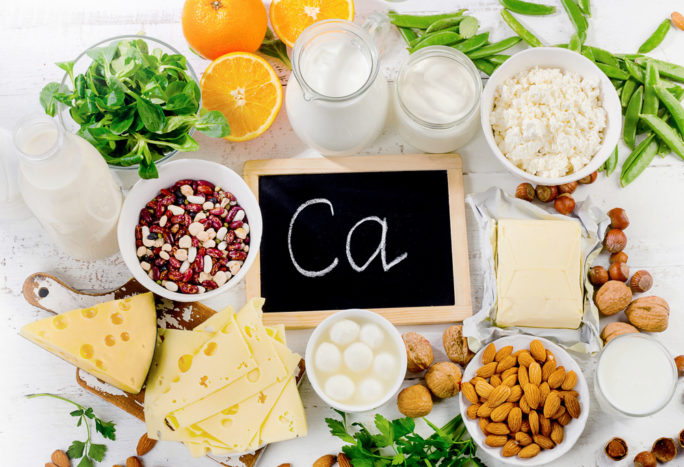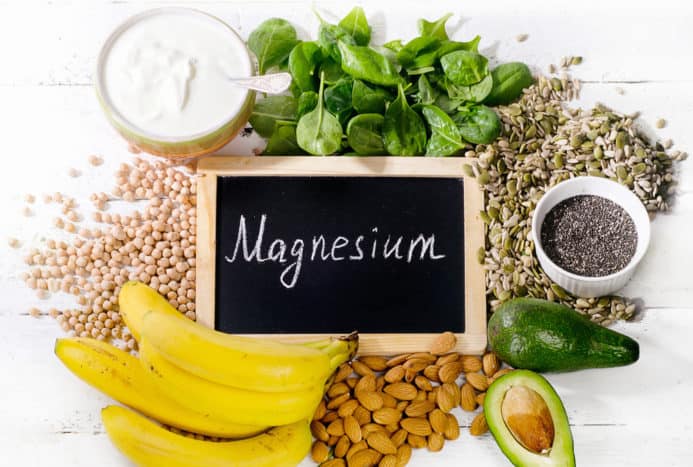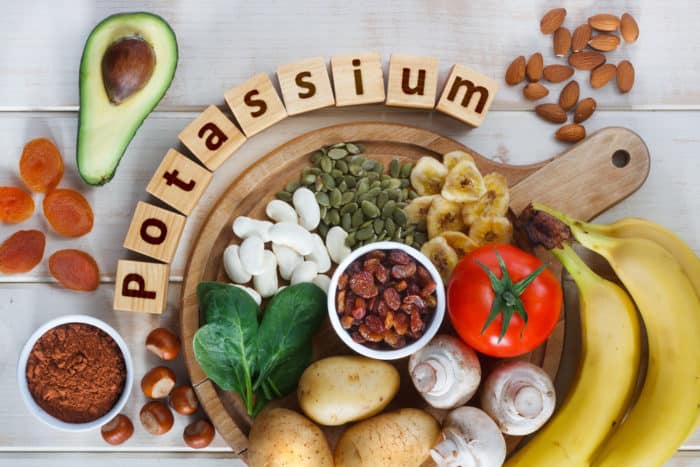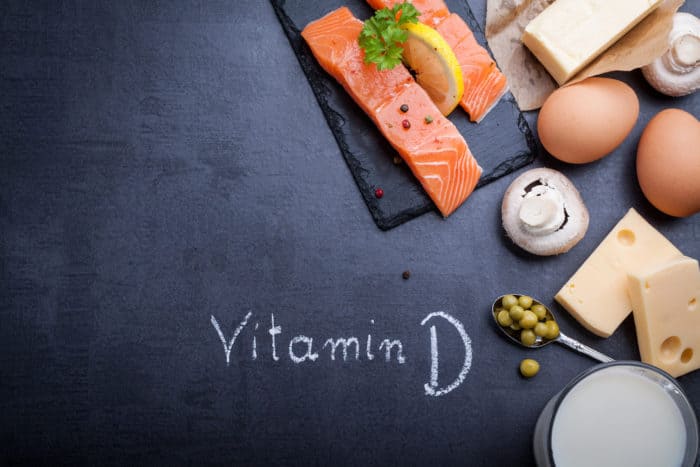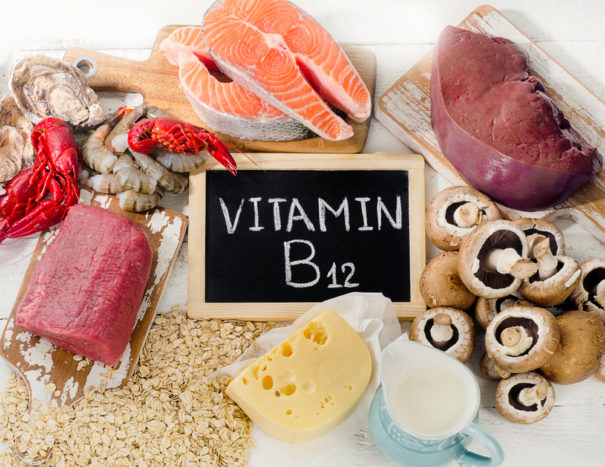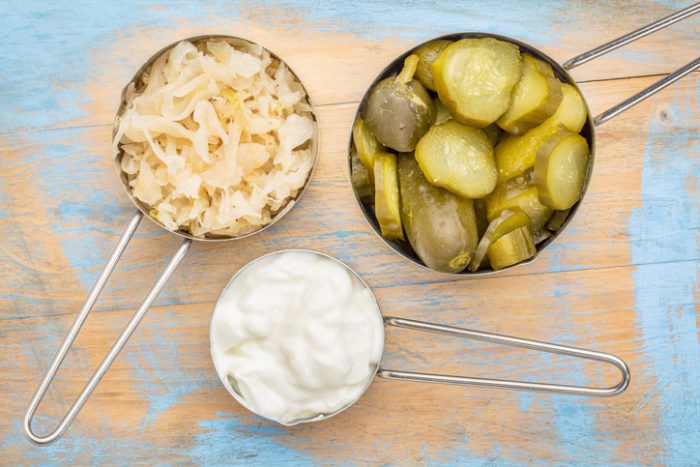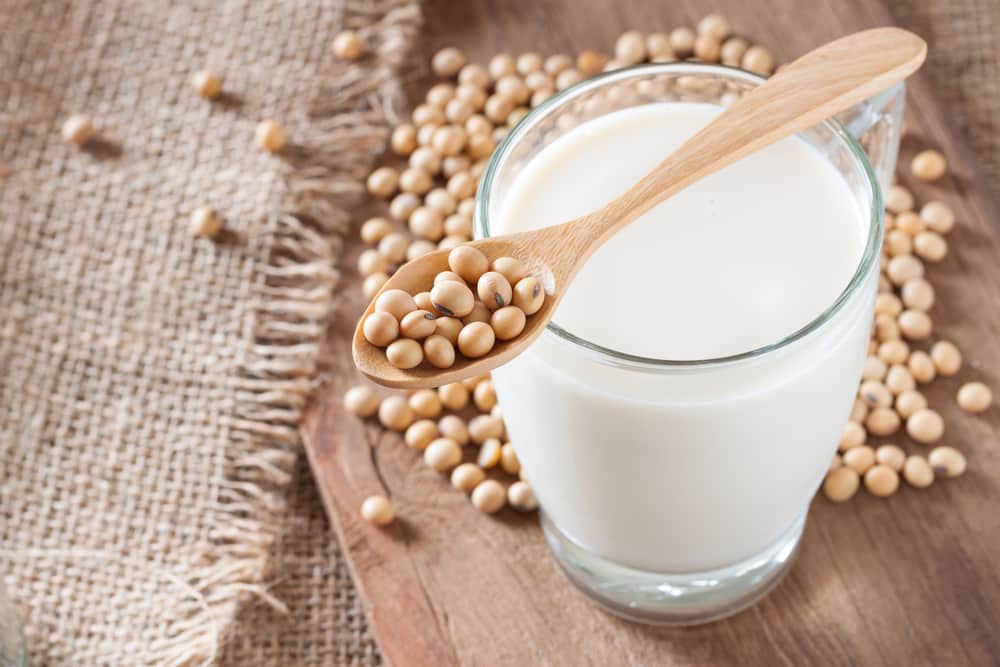Contents:
- Medical Video: Micronutrition Pt 1 - Vitamins and Minerals
- Nutrition needs for adults 40 years and over
- 1. Calcium
- 2. Magnesium
- 3. Potassium
- 4. Omega-3
- 5. Vitamin D
- 6. Vitamin B12
- 7. Probiotics
Medical Video: Micronutrition Pt 1 - Vitamins and Minerals
Everyone at all ages should always meet their nutritional needs every day. Especially for those of you who are entering their 40s. At the age of four heads, various bodily functions have begun to decline and your metabolism is also not as good as your youth. This aging effect makes you more vulnerable to the risk of health problems and chronic diseases. To overcome this, you need the help of micro nutrition ammunition from a variety of healthy foods. The following are nutritional recommendations for adults aged 40 years and over who are required to fulfill.
Nutrition needs for adults 40 years and over
Here is a list of nutritional needs for adults aged 40 years and over who must be fulfilled every day, especially micronutrients (vitamins and minerals).
1. Calcium
Calcium intake should be fulfilled even since you were a child. Kristin Kirkpatrick, MS, RD, manager of Wellness Nutrition Programs at the Cleveland Clinic Wellness Institute, states that the calcium you get from young is a guarantee of the health and strength of bones and teeth in old age. Calcium is also beneficial for maintaining healthy muscles, heart and nerves.
The body's calcium level will peak at the age of 20-25 years, but will begin to slowly decline afterwards. That's why calcium is one of the nutritional needs for adults that must be fulfilled at the age of 40 years and over.
Referring to the 2013 Ministry of Health's Nutrition Adequacy Rate (AKG), calcium requirements for those aged 40 years and above are 1,000 mg per day. Apart from milk and processed products, you can get calcium from sardines, anchovies, eggs, dark green vegetables (broccoli, spinach, bokcoy, lettuce), oranges, and tofu.
2. Magnesium
Magnesium is a mineral that is one of the nutritional needs for adults in their 40s and above. People who are deficient in magnesium are usually at risk for heart disease, diabetes, and chronic inflammation.
This is because magnesium helps regulate blood pressure, especially for women who are at risk of hypertension due to aging. In addition, magnesium also helps the body absorb calcium and functions to strengthen muscles, nerves, heart function, and control blood sugar.
Magnesium needs for men and women in their 40s are different. Men in their 40s and above need around 350 mg of magnesium every day, while women have 320 mg per day. You can meet the needs of magnesium from a variety of the best food sources such as dark green leafy vegetables, bananas, beans, soybeans, and also avocados.
3. Potassium
Potassium also plays an important role in keeping blood pressure stable. In addition, this one mineral also helps maintain the body's pH balance. In elderly and middle-aged women, research has shown that adequate potassium intake can reduce the risk of postmenopausal stroke.
Men and women aged 40 years and above both need 4,700 mg of potassium every day. You can get it from a variety of healthy foods such as green vegetables, tomatoes, avocados, bananas, sweet potatoes, turnips, and beans. Try to eat this food in its freshest form or cook only for a short time to keep the potassium content intact.
4. Omega-3
Omega-3 fatty acids include nutritional requirements for adults near midlife that cannot be missed. Omega-3 can help fight inflammation, reduce tension and bad LDL cholesterol, and reduce the risk of heart disease. These essential fatty acids also play a role in maintaining brain health and keeping you from memory problems associated with aging.
Your daily omega-3 needs are determined by current health conditions. If you are healthy and fit, you only need 500 mg per day. But if you have heart disease, you need an omega-3 intake of around 800-1,000 mg every day. If you have high triglyceride levels, you need around 2,000 to 4,000 mg of omega-3 every day.
Foods that are rich in omega-3 are mackerel, salmon, anchovy, fresh tuna, catfish, cabbage, whole wheat oatmeal, broccoli, cauliflower and spinach. You can also get additional intake from fish oil supplements. We recommend that you consult a doctor first to ascertain how many doses of omega-3 are suitable for you.
5. Vitamin D
After entering the age of 40 years, vitamin D is needed to protect the body from the effects of aging that began to appear. Vitamin D is good for healthy bones, teeth, immune system, heart function, and nervous system. Vitamins, also known as sun vitamins, also help absorb calcium so that it can be utilized optimally by the body.
Sunlight is one of the best sources of vitamin D. Therefore, try to bask in the morning for approximately 10 minutes before nine in the morning. In addition to sunlight, various dairy products, grains, tuna, egg yolks, cheese, and button mushrooms are also good sources of vitamin D for the body. Both men and women aged 40 years and over, the daily intake of vitamin D needed is 15 micrograms (mcg).
6. Vitamin B12
Vitamins that are also one of the nutritional needs for adults over 40 years are vitamin B12. Vitamin B12 is important for maintaining the health of the brain and also the eyes, from the age of children to adults.
This vitamin will actually be more easily absorbed from food sources such as chicken, fish, milk, and eggs. But as age progresses, the production of stomach acid starts a little so it will be difficult to digest vitamin B12 from food. To outsmart, you can take supplements with a dose range of 2.4 micrograms (mcg) per day. It's good to consult with a doctor first.
7. Probiotics
Although not including vitamins or minerals, probiotics continue to be one of the nutrients that should be met by middle-aged people.
Probiotics help maintain intestinal health, maintain ideal body weight, to reduce the risk of heart disease, diabetes, and also strokes. To fulfill your daily needs, you can consume probiotics from various dairy products such as yogurt, miso, pickles, kimchi, and fermented soy products such as tofu and tempeh.


